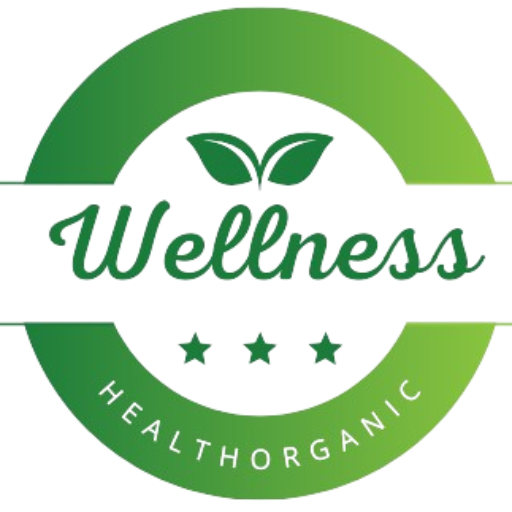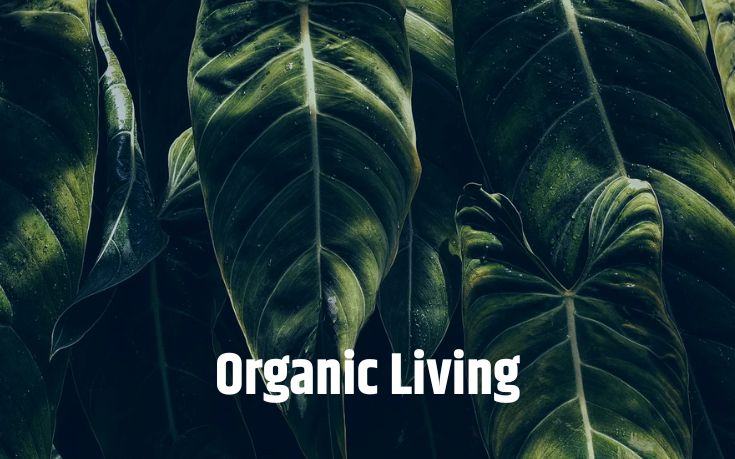Hello Health and Eco-Conscious Readers! Organic living is much more than just a label on your groceries; it’s a holistic approach toward a healthier lifestyle and a more sustainable planet. Knowing what happens as a result of our choices, the adaptation of organic living will go a long way in saving your well-being and that of the environment. Join me on a journey beyond the label while we look through how to integrate the organic principle into every part of your life.
Organic Living
Organic living means making choices with naturalness, sustainability, and Eco-friendliness as the focus. This can extend from healthy food to commodities and even the way one leads their life. With organic, one is supporting farming techniques that avoid the use of synthetic chemicals. Moreover, they enhance biodiversity and care about the soil’s well-being. In any case, it has nothing to do with food: the path of organic living goes right into personal care and clothing, cleaning products, and even the home environment.
The core of the organic way of life is, of course, organic food. Organic fruit, vegetables, and grains are cultivated without any artificial pesticides, fertilizers, or GMOs. Organic meat and dairy products come from animals bred without antibiotics and artificial hormones and fed organic feed. This results in health benefits that cannot be counted.
Organic food often contains more vitamins, minerals, and antioxidants. These are the nutrients that will help you boost your immune system, give you better health, and decrease the risks of having chronic diseases. Moreover, organic food does not have added chemicals or other harmful additives, therefore it is safe for consumption by you and your families.
Organic Personal Care
Our skin is our biggest organ, and the products we use on it are so very vital. Organic personal care products, like shampoos, lotions, and cosmetics, are prepared from ingredients that are devoid of harmful chemicals like parabens, phthalates, and fragrances. These products create less irritation to the skin, and allergic multiplication cases are reduced.
Moreover, most organic personal care products utilize makeup derived from plants rich in vitamins and antioxidants to promote healthier skin and hair. With organics, one also comes across companies that source sustainably and work eco-friendly towards beauty that is friendly to the environment.
Organic Clothing and Textiles
Organic living extends into what you wear. Organic clothing is made from natural fibers: cotton, wool, and hemp; these are grown without synthetic pesticides or fertilizers, which reduces the impact on the land and thus fosters sustainable farming techniques.
Organic textiles not only are better for the environment; they are better for one’s health, too. Most conventional fabrics may thus retain residues of chemicals used in farming and manufacturing, which get absorbed by your skin. Organic fabrics don’t make such compromises at all. They seem to be much safer and more comfortable.
Eco-Friendly Home
An organic home environment means choosing products and practices that reduce your ecological footprint, from organic cleaning products to furniture made sustainably. Organic cleaning products are made out of natural materials, which are eco-friendly, biodegradable, and non-toxic—in short, all those elements that contribute toward ensuring a cleaner living space with reduced pollution.
Think about eco-friendly furniture and decorations that can be fashioned out of such sustainable materials as reclaimed wood, bamboo, and metals recycled from pre-consumed products. Such choices help in reducing wastes but also offer support to responsible production methods. Improve air at home and create a cozier atmosphere by adding plants.
Organic Gardening
If you have the space, it is an excellent method for staying in contact with nature and savoring fresh, delicious food from your backyard. Organic gardening uses only natural fertilizers, compost, and pest control methods for growing fruits, vegetables, and herbs. It means biodiversity and good health for soils, providing you with healthy food.
Even if you live in a flat, you can still grow your organic garden. Options to grow in a small area include container and vertical gardens. By growing your herbs and veggies personally, you will not only receive fresh ingredients for your healthy diet but also contribute to your reduced carbon footprint by saving fuel consumption through transport and packaging.
Less Wasting
A big part of living organically is cutting down on waste. It simply means developing an awareness of how one lives and seeking alternatives that will least harm the environment. Start by reducing your usage of single-use plastics. Instead, use reusable cotton bags, metal water bottles, and glass containers.
Another effective way of reducing waste is composting. By composting kitchen scraps and yard waste, you’ll create nutrient-rich soil for your garden while keeping organic matter out of landfills. In the simple act of composting lie the keys to significantly reducing household waste and living a more sustainable life.
Sustaining Sustainability
It’s also about sustainability and fairness. Look for third-party certifications like USDA Organic, Fair Trade, and Rainforest Alliance. These independent parties ensure that the product meets stringent standards for both environmental sustainability and social responsibility. By purchasing such products, you are joining millions in demanding more ethical and sustainable ways of production.
Shop at local farmers’ markets and think about joining a CSA so that you can buy directly from organic and sustainable farmers to ensure freshness, seasonality, and good environmental stewardship in the production of what you eat.
Role of Technology
Technology can also be part of organic living. Applications and online resources will help you track down organic products, let you monitor your carbon footprint, and finally connect with like-minded communities. For example,”EWG’s Healthy Living” apps allow one to know the ingredients of personal care products.
Share tips, recipes, and experiences about organic living through social networks and forums. One can use technology intelligently to help keep one up-to-date, inspired and connected in the journey toward an increasingly organic lifestyle.
Final Words
Organic living means more than just having the label. This is one holistic approach to health, sustainability, and ethics taken first across all organic food, personal care products, clothing, and home goods—one is having a healthier and more sustainable planet. It’s not about perfection; rather, it means making mindful choices to align with values to have a thriving life for both one’s self and the planet. Begin your journey today and enjoy innumerable benefits that come your way by living organically.

